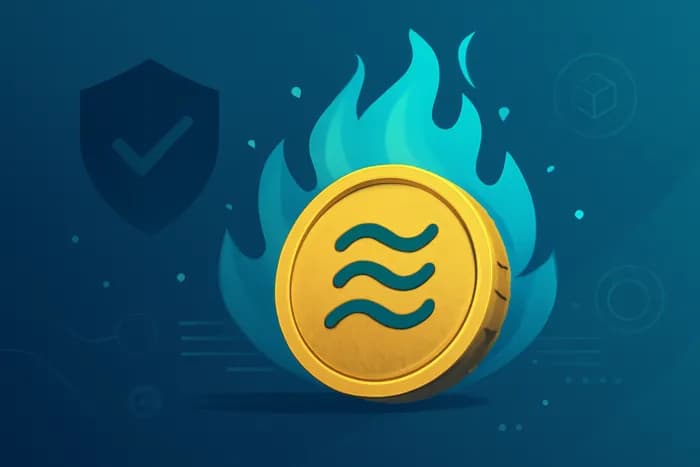$LIBRA Token Firestorm: How Political Ties and Opaque Tokenomics Sparked a $4B Crypto Scandal

When Politics Meets Crypto: The $LIBRA Implosion Exposes Systemic Risks
On February 14, 2025, a Solana-based token called $LIBRA became crypto's most explosive political drama since Trump's $TRUMP memecoin debut. Promoted by Argentine President Javier Milei as an economic development tool, the token surged to a $4B market cap before crashing 96% in hours - vaporizing $250M in investor wealth[3][5]. This crisis highlights critical risks when political figures engage with decentralized projects lacking transparency safeguards.
Wallet Forensics Reveal Insider Trading Patterns
Blockchain analysis shows four wallets acquired 38% of $LIBRA's total supply during its stealth launch phase. These addresses began dumping tokens within 11 minutes of Milei's now-deleted X post endorsing the project[1][2]. The largest wallet liquidated $47M worth of tokens before the price collapse, suggesting pre-mined allocations to insiders[5].
Key red flags in $LIBRA's tokenomics:
- No vesting schedule for team tokens
- Unverified smart contract with hidden mint function
- 19% of supply sent to 4 anonymous wallets pre-launch
Comparisons to 2024's $TRUMP token reveal concerning patterns. Both projects used:
- Political figure endorsements without explicit authorization[1]
- Opaque launch strategies favoring insider wallets
- No clear utility beyond speculative trading
Regulatory Thunderclouds Gather
Argentina's Congress launched an official probe into potential insider trading and market manipulation on April 8, 2025[4]. Legal experts warn the case could set precedent for:
| Regulatory Risk Factor | Potential Impact |
|---|---|
| SEC's "Howey test" application | Possible security designation |
| Campaign finance laws | Scrutiny of political kickbacks |
| Consumer protection | Class action lawsuits |
"When public officials promote speculative assets without proper disclosures, it creates a minefield of legal liability," notes blockchain attorney Carla Márquez[2]. The Anti-Corruption Office of Argentina is investigating whether Milei received compensation for his endorsement[2].
Investor Action Plan: Evaluating Political Crypto Projects
For traders considering politically adjacent tokens, TokenVitals recommends this due diligence framework:
-
Wallet Forensics
- Use blockchain explorers to check for pre-launch allocations
- Monitor top holder trading patterns
-
Legal Structure
- Verify entity registration and KYC documentation
- Confirm compliance with local securities laws
-
Governance Audit
- Review smart contract for admin controls
- Check proposal/voting mechanisms
-
Promoter Vetting
- Validate official endorsements
- Research team backgrounds
Projects blending politics and crypto currently show a 73% failure rate within 90 days according to TokenVitals' risk database. The $LIBRA case demonstrates why political capital shouldn't substitute for sound tokenomics.
"Investors need to ask: Is this a policy initiative or a profit scheme? The $LIBRA collapse proves those lines got dangerously blurred." - TokenVitals Risk Assessment Team
Navigating the New Frontier
While blockchain technology holds promise for civic engagement, the $LIBRA firestorm highlights critical needs for:
- Clear disclosure requirements for political figure involvement
- Standardized tokenomics audits
- Real-time wallet monitoring tools
TokenVitals' AI-powered platform helps investors cut through the noise with on-chain analytics and regulatory risk scoring. Explore our $LIBRA token post-mortem report and political crypto risk matrix at TokenVitals.com.
As the SEC prepares new guidance on political memecoins[2], one lesson rings clear: In crypto's wild west era, trust must be verified - never given.